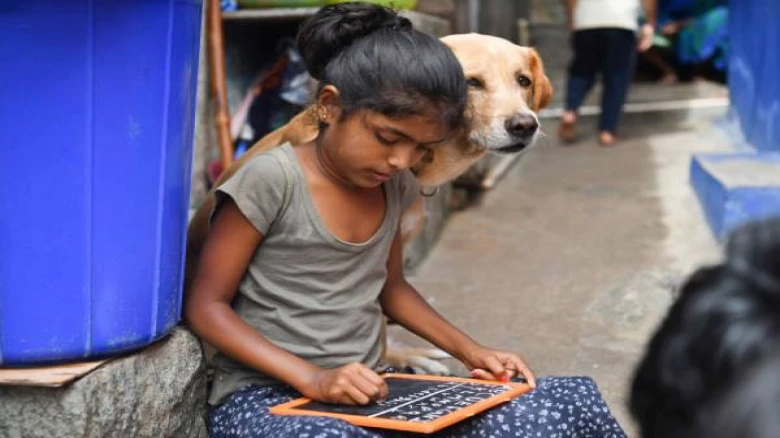National

A family where there is an ailing mother or one who is disabled, a family full of debt, or one with a single parent. Children from such families are more vulnerable to consuming drugs, indulging in child labour or even falling into the flesh trade. For such children, school is unquestionably a better and safer place for their holistic development and overall growth.
Digital Desk: The
pandemic has badly affected everyone, but the worst hit are the poorest
sections of the population. The world was brought to a standstill as COVID-19
took away thousands of lives and affected many.
Around 145 million of India’s rural poor migrate seasonally
in search of work. These migrant workers, who are part of India’s unorganized
workforce, estimated at over 350 million, undertake casual work in the
construction, manufacturing, services, and farm sectors. They remain debarred
from services and rights as workers and citizens, in their rural homes and
their places of work.
A family where there is an ailing mother or one who is
disabled, a family full of debt, or one with a single parent. Children from
such families are more vulnerable to consuming drugs, indulging in child labour
or even falling into the flesh trade. For such children, school is
unquestionably a better and safer place for their holistic development and
overall growth. School is a place where younger minds are nurtured and given
proper guidance and are made job-ready. In this highly competitive world, where
there are thousands of job seekers but in contrast there is high scarcity of jobs, education is must
for living a life with dignity and respect.
In the present day scenario of education, we have seen the
popularity of Mid-May Meals. Schools which provide a mid-day meal to their
students witness a better attendance ratio. Students, in the hope of having a
proper meal, come to school, and along with attending classes, they have their
mid-day meal in the school itself. It is said that a child who is hungry can
never learn, and also if he/she is disturbed or mentally ill, he/she can never
acquire knowledge. The motive of providing a mid-day meal was for this reason.
The concept was widely acknowledged and adopted by many government schools.
Schools are still encouraged to adapt to this method and offer meals to the
children.
But in 2020, the pandemic changed the entire scenario of
education. Due to the pandemic, everything was shut down, and so were the
schools. Due to the life-threatening virus, technology came into play when the
traditional form of learning and teaching was not possible. Even in offices,
creative field jobs, and coaching were held online through various video calling
apps such as Zoom, Google Classroom, etc. But only a section of the population could adjust to this 'new normal' and accordingly, a paradigm shift
took place. But what about the other sections of the population? A few
questions came in the forefront such as:
Is the technology affordable? Gone are the days when the
Internet was free as Jio provided everyone with free internet services. Now
internet packs are costlier and also the question that occurs is: Is
electricity available anywhere anytime? And are mobile phones available to
everyone? Even if mobile phones are there, is the internet connectivity
available to everyone? These questions need to be answered. India is a country
where root problems are often ignored and big projects are undertaken. In a
country where problems like water scarcity, lack of proper schools, and flash
floods are rampant, the construction of skyscrapers, metros, and hyper loops
are given more importance.
The Indian Government under the RTE Act granted the
provision of free education for children from 6 to 14 years of age. Although
appreciable, several vulnerable children are still devoid of proper education
facilities and end up in unorganised sectors as child labourers. The third
group consists of children who migrate in search of work.The children of the
first group are dependent on remittances sent back home, so the reduction or
elimination of parents' wages due to the lockdown and limited movement during
pandemics has immediate effects on food intake and health outcomes of these children
(Unni, 2020). Similarly, the children of the second and third groups are also
directly affected due to the closing down of economic activities. The children
in India have been vulnerable for a plethora of reasons during the pandemic due
to the lockdown. The job losses faced by migrant workers have aggravated the
difficulties of these children.
Leave A Comment